Banned Comic Books for Banned Books Week
(In honor of Banned Books Week (September 30-October 6, 2012) we are reprinting this list from the Comic Book Legal Defense Fund, and will be reprinting lots of stuff from them over the coming week to highlight their efforts. Donate now! —CM)
Banned Books Week is upon us, and it’s telling that the event is more relevant than ever in its 30th year. Given their visual nature and the rampantly held misconception that comic books are for children, comics are among the most challenged and banned books in libraries and schools. Let’s take a look at some frequently challenged and banned comics…
Amazing Spider-Man: Revelations by J. Michael Straczynski, John Romita, Jr., and Scott Hanna
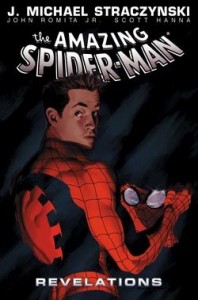
• Location of key challenge: A middle-school library in Millard, Nebraska
• Reason challenged: Sexual overtones
The parent of a 6-year-old who checked out the book filed a complaint and took the story to the media; the parent also withheld the book for the duration of the review process rather than returning it per library policy.
Batman: The Dark Knight Strikes Again by Frank Miller and Lynn Varley
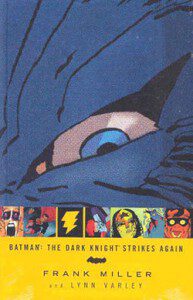
• Location of key challenge: Stark County District Library in Canton, Ohio
• Reason challenged: Sexism, offensive language, and unsuited to age group
Despite the challenge, the library retained the book and now holds two copies, which are shelved in the Teen section.
Blankets by Craig Thompson
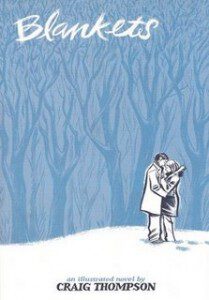
• Location of key challenge: The public library in Marshall, Missouri
• Reason challenged: Obscene images
CBLDF wrote a letter to the Marshall library on behalf of Blankets and Alison Bechdel’s Fun Home, playing a key role in keeping both books on shelves.
Bone by Jeff Smith
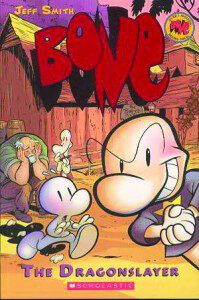
• Location of key challenge: Independent School District 196 in Rosemount, Minnesota
• Reason challenged: Promotion of smoking and drinking
A letter from Jeff Smith decrying the attempted ban of his book was read aloud at the library review committee’s hearing, and the challenge was ultimately rejected by a 10-1 vote, to the praise of Smith and the CBLDF.
Dragon Ball by Akira Toriyama

• Location of key challenge: All public school libraries in Wicomico County, Maryland
• Reason challenged: Violence and nudity
The library review committee recommended that the books in the Dragon Ball series, which were recommended by the publisher for ages 13+, be removed from the entire public school library system, including at the high school level.
Fun Home by Alison Bechdel
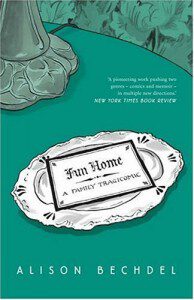
• Location of key challenge: The public library in Marshall, Missouri
• Reason challenged: Obscene images
CBLDF wrote a letter to the Marshall library on behalf of Fun Home and Craig Thompson’s Blankets, playing a key role in keeping both books on shelves.
Ice Haven by Daniel Clowes
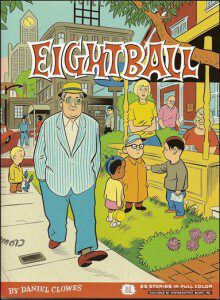
• Location of key challenge: A high school in Guilford, Connecticut
• Reason challenged: Profanity, course language, and brief non-sexual nudity
A high school teacher was forced to resign from his job after a parent filed both a complaint with the school and a police complaint against the teacher for lending a high school freshman a copy of Eightball #22, which was later published as the graphic novel Ice Haven.
In The Night Kitchen by Maurice Sendak
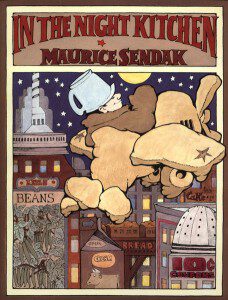
• Location of key challenge: Multiple locations
• Reason challenged: Nudity
In the Night Kitchen was not often removed from shelves; instead, librarians censored it by painting underwear or diapers over the genitals of the main character, a precocious child named Mickey.
League of Extraordinary Gentlemen: The Black Dossier by Alan Moore and Kevin O’Neill
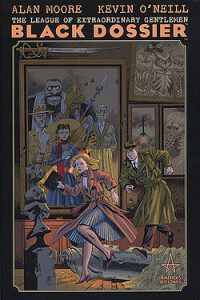
• Location of key challenge: Jessamine County Public Library in Kentucky
• Reason challenged: Sex scenes
Two employees of the Jessamine County Public Library in Kentucky were fired after they took it upon themselves to withhold the library’s copy of League of Extraordinary Gentlemen: The Black Dossier from circulation because they felt it was pornographic.
Maus by Art Spiegelman
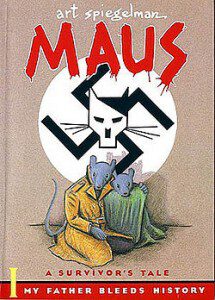
• Location of key challenge: Pasadena Public Library in Pasadena, California
• Reason challenged: Anti-ethnic and unsuited for age group
Nick Smith of the Pasadena Public Library describes the challenge as being “made by a Polish-American who is very proud of his heritage, and who had made other suggestions about adding books on Polish history… The thing is, Maus made him uncomfortable, so he didn’t want other people to read it. That is censorship, as opposed to parental guidance.”
Neonomicon by Alan Moore and Jacen Burrows
![]()
• Location of key challenge: The public library in Greenville, South Carolina
• Reason challenged: Sexual content
Despite giving her 14-year-old daughter permission to check out the book, which was appropriately shelved in the adult section of the library, a mother filed a complaint, claiming the book was “pornographic.” CBLDF wrote a letter in support of the book, but it remains out of circulation pending review.
Pride of Baghdad by Brian K. Vaughn and Niko Henrichon
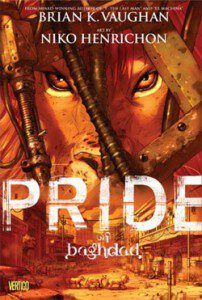
• Location of key challenge: Various
• Reason challenged: Sexual content
Despite receiving high praise from the ALA and Booklist and featuring a cast consisting of animals, the book has been challenged at libraries for sexual content.
Sandman by Neil Gaiman and various artists
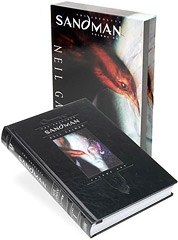
• Location of key challenge: Various
• Reason challenged: Anti-family themes, offensive language, and unsuited for age group
When asked about how he felt when Sandman was labelled unsuitable for teens, Gaiman responded, “I suspect that having a reputation as adult material that’s unsuitable for teens will probably do more to get teens to read Sandman than having the books ready and waiting on the YA shelves would ever do.”
SideScrollers by Matthew Loux
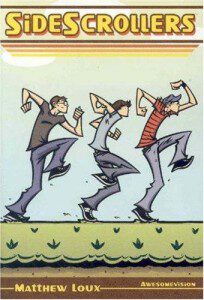
• Location of key challenge: The public school district in Enfield, Connecticut
• Reason challenged: Profanity and sexual references
The school district removed the book from non-compulsory summer reading lists, possibly violating its own review policy, which states in part that “no parent nor group of parents has the right to negate the use of educational resources for students other than his/her own child.” CBLDF wrote a letter in support of the book and is still awaiting a response from the school board.
Stuck in the Middle, edited by Ariel Schrag
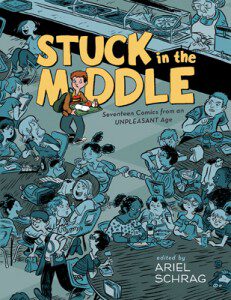
• Location of key challenge: The public school system in Dixfield, Maine
• Reason challenged: Language, sexual content, and drug references
CBLDF wrote a letter in support of the book, and the school board voted to leave the book on library shelves with the caveat the students must have parental permission to check out the book. “While we’re pleased to see the book retained in the library’s collection, we’re very disappointed that it is retained with restrictions,” said Executive Director Charles Brownstein.
Stuck Rubber Baby by Howard Cruse
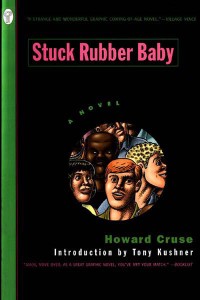
• Location of key challenge: Montgomery County Memorial Library System, Texas
• Reason challenged: Depiction of homosexuality
The book was challenged alongside 15 other young adult books with gay positive themes. The book was ultimately retained in the Montgomery County system, but was reclassified from Young Adult to Adult.
Tank Girl by Alan Martin and Jamie Hewlett
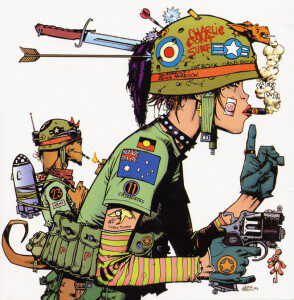
• Location of key challenge: Hammond Public Library in Hammond, Indiana
• Reason challenged: Nudity and violence
The Tank Girl books are meant to entertain an adult audience, frequently depicting violence, flatulence, vomiting, sex, and drug use. After the 2009 challenge, the Hammond Public Library chose to retain the book, and it remains on shelves today.
The Color of Earth by Kim Dong Hwa

• Location of key challenge: Various
• Reason challenged: Nudity, sexual content, and unsuited to age group
When the American Library Association’s Office of Intellectual Freedom released their list of the Top Ten Most Frequently Challenged Books of 2011, the second-most challenged book on that list was The Color of Earth, the first book of a critically-acclaimed Korean manwha, or comic book, series.
Watchmen by Alan Moore and Dave Gibbons
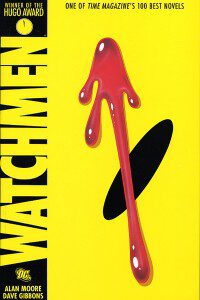
• Location of key challenge: Various
• Reason challenged: Unsuited to age group
Watchmenreceived a Hugo Award in 1988 and was instrumental in garnering more respect and shelf space for comics and graphic novels in libraries and mainstream bookstores. The inclusion of Watchmen in school library collections has been challenged by parents at least twice, according to the American Library Association’s Office for Intellectual Freedom.
Given their visual nature, graphic novels and comic books are among the most-challenged books in libraries and schools. CBLDF is an official sponsor of Banned Books Week, which takes place September 30 – October 6, 2012. Please help support CBLDF’s defense of your right to read by making a donation or becoming a member of the CBLDF!
Related articles
- Fifty Shades joins list of banned books (smh.com.au)
- Alan Engelbert: Read a banned book lately. (wvgazette.com)
- No sex please, we’re American – Banned Books Week turns 30 (guardian.co.uk)



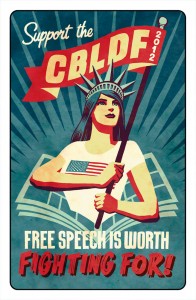 Just last week, the CBLDF website was recognized by Tom Spurgeon with The Comics Reporter for our “content explosion,” and we want to do more! CBLDF is looking for contributors to add to our already spectacular roster of bloggers. Whether you’re a journalism student looking for experience, a passionate fan of comics and Free Speech, or an educator and librarian who wants to share your experiences, CBLDF is looking for your voice!
Just last week, the CBLDF website was recognized by Tom Spurgeon with The Comics Reporter for our “content explosion,” and we want to do more! CBLDF is looking for contributors to add to our already spectacular roster of bloggers. Whether you’re a journalism student looking for experience, a passionate fan of comics and Free Speech, or an educator and librarian who wants to share your experiences, CBLDF is looking for your voice!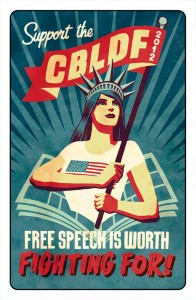 Are you a journalism student looking for blogging experience? Or a fan of comics and manga with great writing skills and something to say about Free Speech? Are you an educator or librarian who’s a dedicated supporter of the First Amendment? CBLDF would like to include your voice on our website!
Are you a journalism student looking for blogging experience? Or a fan of comics and manga with great writing skills and something to say about Free Speech? Are you an educator or librarian who’s a dedicated supporter of the First Amendment? CBLDF would like to include your voice on our website!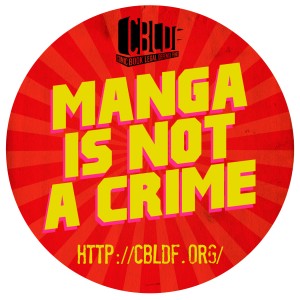 The Toronto Comic Arts Festival takes place this weekend, and
The Toronto Comic Arts Festival takes place this weekend, and 








